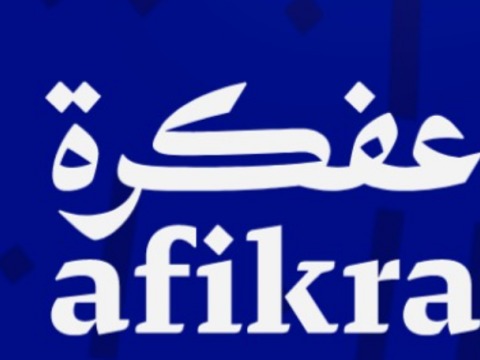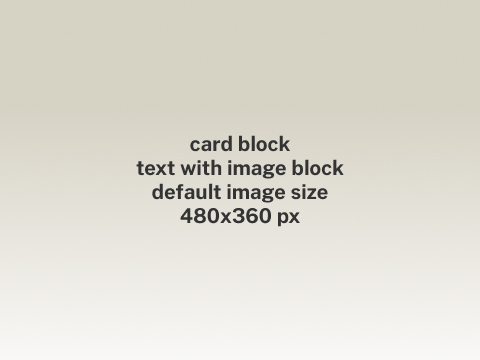Other Online Resources
Here are some online lesson plans, resources, and media that we think are great!

Photo Credit.
Units produced by Hemispheres and CMES
Naturally, pride makes us point out that we have a number of our own curriculum resources waiting for you to use them!
Learn More
Photo Credit.
Snapshots of Contested Istanbul
Blog posts produced by students in Dr. Jeannette Okur’s undergraduate course, Contested Istanbul, right here at UT Austin.

Photo Credit.
The Middle East Today with Dr. Nahid Siamdoust
The Middle East Today series was launched in Fall 2022 to attend to current affairs and invite experts in the field to comment on critical political, cultural, social, and economic developments across the Middle East region. The series aims to engage the UT and wider Austin communities in conversations about significant events – often with potential global repercussions – in Arab countries, Iran, Turkey, and Israel-Palestine.
Learn More
I am required.
Islamic Art & Geometric Design: Activities for Learning
Examine the principles of geometric design that are the basis for the beautiful and intricate patterns in the art of the Islamic world. Includes a brief overview of Islamic art, an introduction to related works in the Museum, and a series of pattern-making activities (including reproducible grids) for use in the classroom. Teachers can readily adapt these materials to create exciting lessons in art, culture, math, and geometry.
Metropolitan Museum of Art
Photo Credit.
Art of the Ancient Near East: A Resource for Educators
Learn about the cultural, archaeological, and historical contexts for a selection of thirty works of art in the form of sculpture, silver and gold ritual vessels and objects, monumental reliefs, cuneiform tablets, and stamp and cylinder seals. Curriculum connections, discussion questions, lesson plans, and activities for a range of grade levels provide useful strategies for teaching in the classroom. The resource also includes a bibliography and glossary.
Metropolitan Museum of Art
Photo Credit.
Golha Archive
The Golha (‘Flowers of Persian Song and Music’) radio programmes were broadcast on Iranian National Radio for 23 years from 1956 through 1979. Since 2005, many other archives and important collections have been collected or donated to the Golha project, including folk recordings, private recordings, additional archives of radio programmes, together comprising thousands of hours of twentieth-century Persian music.
Metropolitan Museum of Art
Photo Credit.
Majazz Project Palestinian Sound Archive
Majazz Project/Palestinian sound archive is a Palestinian archival record label and alternative research journal.
The Smithsonian's Freer and Sackler Galleries of Art
Photo Credit.
Syrian Cassette Archives
An initiative to preserve, share and research sounds and stories from Syria’s abundant cassette era (1970s-2000s).
Learn More
Photo Credit.
Turkish Music Portal
Established by the Turkish Cultural Foundation, this site highlights Turkish music history, iconic composers, traditional instruments, and much more.
Learn More
Photo Credit.
Rethinking the Region: New Approaches to 9-12 US Curriculum on the Middle East and North Africa
Research-based curricular project analyzed the common categories used to describe and teach the Modern Middle East and North Africa in existing U.S. World History textbooks. Based on this research, we offer robust alternatives for Grade 9-12 social studies teachers and multicultural educators that integrate new scholarship and curricula on the region.
Learn More
Photo Credit.
Middle East Book Award
Organized by the Middle East Outreach Council, this award recognizes books for children and young adults that contribute meaningfully to understanding of the Middle East
Learn More
Photo Credit.
Teaching the World
Teaching the World is a collection of resources and events culled from Title VI National Resource Centers (NRCs).
Learn More
Photo Credit.
afikra عفكرة
afikra is a pioneering global media and educational platform that evolved from a grassroots movement into a leading engine that fuels intellect in and cultural understanding of the Arab world. They offer curricular material and comprehensive lesson plans for high school teachers.
Learn More
Photo Credit.
Middle East Studies Pedagogy Initiative
MESPI is a curated interactive platform for Middle East Studies resources, specifically tailored for the needs of teachers, researchers, and students. It is a one-stop-shop for course design on the macro level, lesson planning on the micro level, and for scholarship vis-a-vis specific topics, countries, and disciplines.
Learn More
Photo Credit.

Photo Credit.

Photo Credit.

Photo Credit.
- TED Talks
(Suggested by former Outreach Director Christopher Rose)
As a feel-good resource for everyone, I wanted to share a few of my favorite TED talks. If you're not familiar with TED, it's a collection of inspiring talks by people you probably haven't heard of, but will enjoy hearing from. Each one is a short video clip (5-20 min) that can be downloaded.Chimamanda Adichie: The Danger of a Single Story
Watch the talk here.
This lecture isn't Middle East specific -- the speaker is a Nigerian woman -- but it very neatly captures who we as educators devoted to world studies are and why we do what we do. Novelist Chimamanda Adichie tells the story of how she found her authentic cultural voice -- and warns that if we hear only a single story about another person or country, we risk a critical misunderstanding.
I've used this clip several workshops and it really captures for many teachers why they want to teach from diverse perspectives, and it really resonates with me. If you've ever found yourself wondering why you have to address--again--"Why they hate us" or debunking the myth that Iraqis are all religious fanatics, that all Israelis hate all Palestinians (and vice-versa) and that the region as a whole is spoken for authentically by Osama bin Laden and Mahmoud Ahmedinejad, (views that are, sadly, prevalent in the reader comments on the next two videos) this is a good one to use as a basic building tool.
Lesley Hazelton: On Reading the Qur'an
Watch the talk here.
Lesley Hazleton sat down one day to read the Koran. And what she found -- as a non-Muslim, a self-identified "tourist" in the Islamic holy book -- wasn't what she expected. With serious scholarship and warm humor, Hazleton shares the grace, flexibility and mystery she found, in this myth-debunking talk from TEDxRainier. I've started showing this relatively short (8 minute) clip in all my workshops where I do an Islam 101 presentation. I've even used it with a military audience, and they really liked it.
Naif al-Mutawa: Superheroes inspired by Islam (The 99)
Watch the talk here.
The 99, a series of graphic novels / comics about superheroes who each bear one of the 99 names of God given in the Qur'an as a superpower, is supposed to be an inspirational series for Muslim kids and others. Not surprisingly in this day and age, it also ran into controversy when it was being turned into an animated series over fears of "indoctrinating" non-Muslim kids. Here, creator Naif al-Mutawa talks about what inspired the series in the first place.
Ghada Abdel Aal at TedX Amsterdam Women
Watch the talk here.
Ghada Abdel Aal is the Egyptian author of I Want to Get Married!, the popular blog-turned-book-turned-Ramadan serial about a young, professional, Muslim Egyptian woman who seeks out a husband for herself but doesn't really want to settle for the first guy who comes in the door. And so she meets various characters, including the mama's boy, the groom who flips out when he feels that his favorite football player has been insulted, the policeman who feels that his uniform should speak for itself, and other assorted misfits. Abdel Aal addresses the success of the blog and the experience of having it translated into different languages and the fame that it's brought her in this talk.
- BBC World Book Club
World Book Club invites the globe's great authors to discuss their best known novel. This monthly program, presented by Harriett Gilbert, includes questions from World Service listeners.
Each Episode is approximately 55 minutes long in MP3 audio. Among the Middle Eastern authors represented are:Leila Aboulela (Sudan/Egypt)
Aboulela speaks about her novel Minaret.
Download: https://open.live.bbc.co.uk/mediaselector/6/redir/version/2.0/mediaset/audio-nondrm-download/proto/https/vpid/p03cdykv.mp3Alaa al-Aswany (Egypt)
Egyptian writer Alaa Al-Aswaany discusses his best-selling novel, The Yacoubian Building, a moving study of politics and power in downtown Cairo.
Download: http://downloads.bbc.co.uk/podcasts/worldservice/wbc/wbc_20091107-2006b.mp3
David Grossman (Israel)
Acclaimed Israeli writer David Grossman talks to presenter Harriett Gilbert and a studio audience about his prize-winning novel To the End of the Land.
Download: http://downloads.bbc.co.uk/podcasts/worldservice/wbc/wbc_20111105-1106a.mp3Mohsin Hamid (UK/Pakistan)
Hamid discusses his book The Reluctant Fundamentalist, now made into a film.
Download: https://open.live.bbc.co.uk/mediaselector/6/redir/version/2.0/mediaset/audio-nondrm-download/proto/https/vpid/p02qr65q.mp3Khaled Hosseini (Afghanistan)
Bestselling writer Khaled Hosseini discusses The Kite Runner, his first novel set in Afghanistan, which has sold 15 million copies.
Download: http://downloads.bbc.co.uk/podcasts/worldservice/wbc/wbc_20080527-1554.mp3Yasmina Khadra (Afghanistan)
Yasmina Khadra discusses The Swallows of Kabul, a portrait of life under a tyrannical theocracy.
Download: https://open.live.bbc.co.uk/mediaselector/6/redir/version/2.0/mediaset/audio-nondrm-download/proto/https/vpid/p02sv0tb.mp3Hisham Matar (Libya)
Libyan writer Hisham Matar talks to Harriett Gilbert and a studio audience about his chilling novel In the Country of Men.
Download:https://open.live.bbc.co.uk/mediaselector/6/redir/version/2.0/mediaset/audio-nondrm-download/proto/https/vpid/p02qrbt4.mp3Elif Shafak (UK/Turkey)
Harriett Gilbert speaks to author Elif Shafak about her novel The Forty Rules of Love.
Download: https://open.live.bbc.co.uk/mediaselector/6/redir/version/2.0/mediaset/audio-nondrm-download/proto/https/vpid/p02qr9f7.mp3Ahdaf Soueif (Egypt)
Soueif discusses her Booker-shortlisted novel The Map of Love. She explains exactly what has gone wrong in Egypt, in her eyes, over the last decade.
Download: https://open.live.bbc.co.uk/mediaselector/6/redir/version/2.0/mediaset/audio-nondrm-download/proto/https/vpid/p02qqv3r.mp3 - Podcasts
15-minute History
The 15 Minute History podcast features short, accessible discussions from UT faculty members and graduate students. The topics are wide-ranging and likely to intrigue any history buff. Subjects are drawn from the World History and U.S. History Standards for Texas K-12 social studies courses, making them a strategic educational resource for teachers and students.
A few of the 15 Minute History episodes focused on the Middle East and North Africa include:
- The Legacy of WWI in the Balkans and Middle East
- The Yazid Inscription
- What Writing Can Tell Us About the Arabs before Islam
- Slavery and Abolition in Iran
- Sunni and Shi'a in Medieval Syria
- Islam's Enigmatic Origins
- The Egyptian Revolution
- Who Are the Turks?
- History of the Ottoman Empire Part I and II
- European Imperialism in the Middle East Part I and II
- Accordion 4Panel 4. Add body text in this space.
- Accordion 5Panel 5. Add body text in this space.
